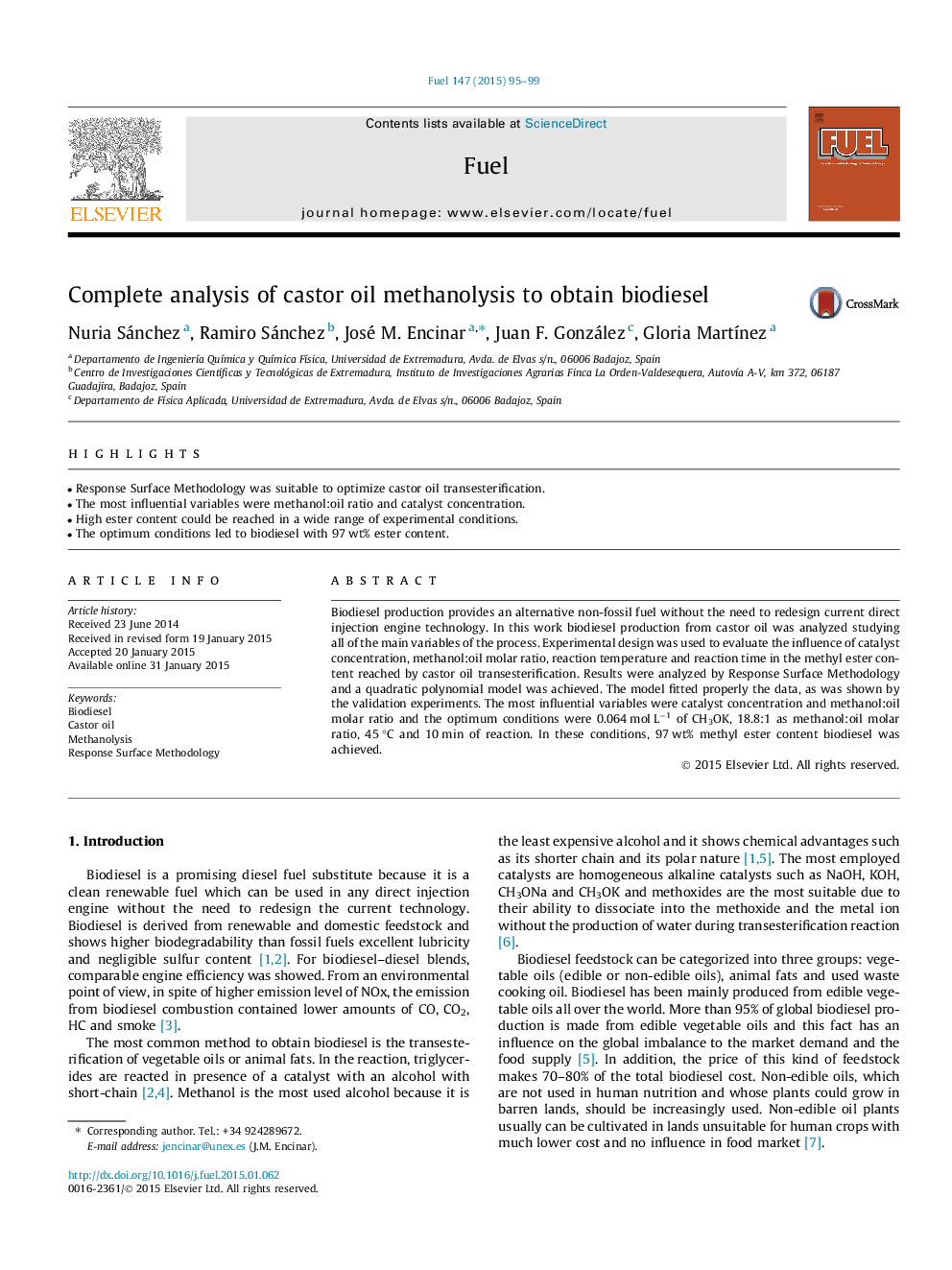| Article ID | Journal | Published Year | Pages | File Type |
|---|---|---|---|---|
| 205947 | Fuel | 2015 | 5 Pages |
•Response Surface Methodology was suitable to optimize castor oil transesterification.•The most influential variables were methanol:oil ratio and catalyst concentration.•High ester content could be reached in a wide range of experimental conditions.•The optimum conditions led to biodiesel with 97 wt% ester content.
Biodiesel production provides an alternative non-fossil fuel without the need to redesign current direct injection engine technology. In this work biodiesel production from castor oil was analyzed studying all of the main variables of the process. Experimental design was used to evaluate the influence of catalyst concentration, methanol:oil molar ratio, reaction temperature and reaction time in the methyl ester content reached by castor oil transesterification. Results were analyzed by Response Surface Methodology and a quadratic polynomial model was achieved. The model fitted properly the data, as was shown by the validation experiments. The most influential variables were catalyst concentration and methanol:oil molar ratio and the optimum conditions were 0.064 mol L−1 of CH3OK, 18.8:1 as methanol:oil molar ratio, 45 °C and 10 min of reaction. In these conditions, 97 wt% methyl ester content biodiesel was achieved.
